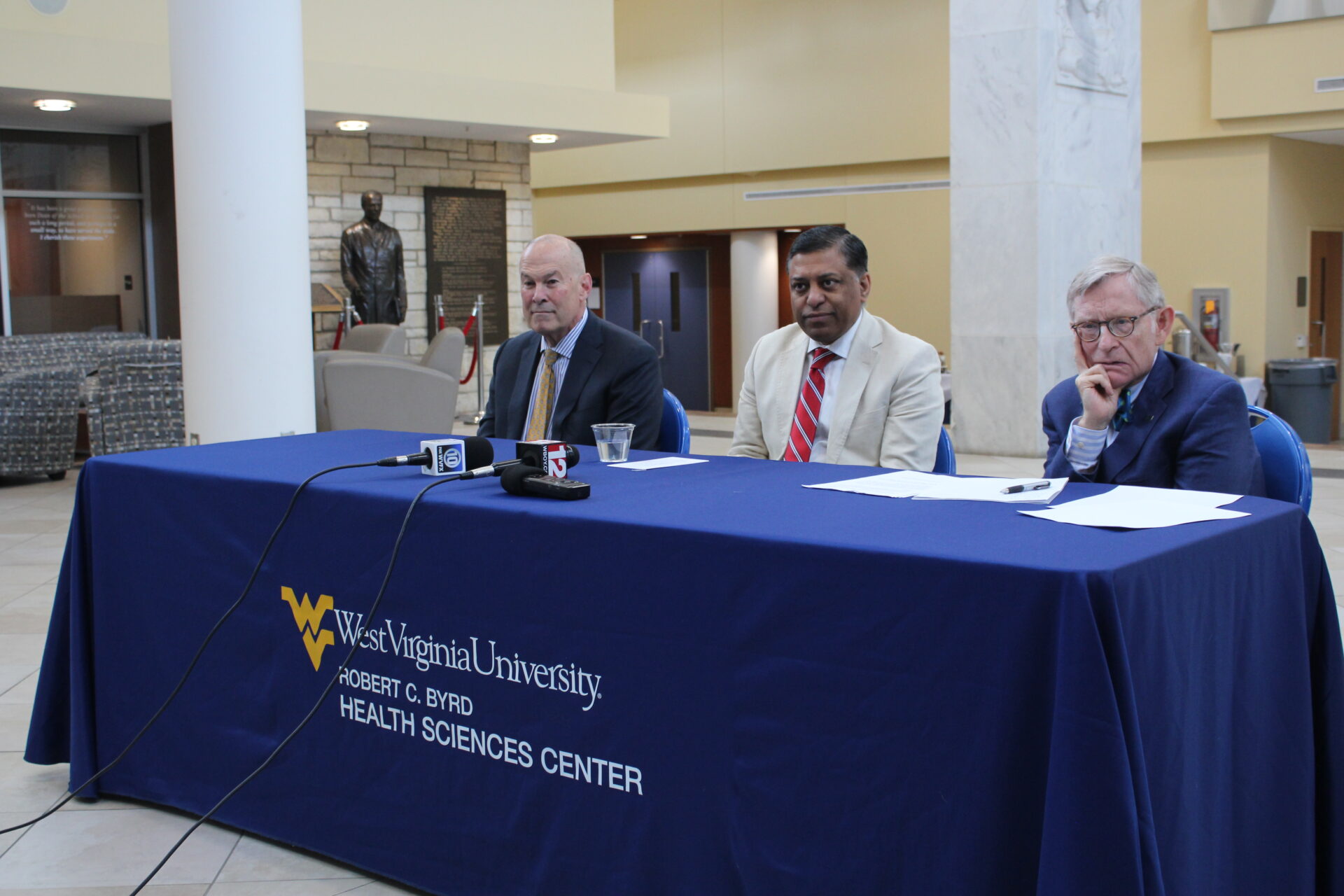The nation’s drug czar visited West Virginia University Thursday as the start of a multi-day tour of the state. The purpose of the trip is to discuss local and national efforts to address the overdose epidemic.
Dr. Rahul Gupta, director of the White House Office of National Drug Control Policy led a panel of lawmakers, university and student leaders, including Dr. Clay Marsh, to discuss the Biden Administration’s National Drug Control Strategy.
He said he was happy to be back in what he considered his home, and that West Virginia is leading the nation in its response to the opioid epidemic.
“For several years, I’ve seen the work grow, the treatment sites get better and better, specifically in West Virginia as a model for the nation,” he said. “When we think about treatment, we in the Biden administration, until now, about $15 billion dollars have come through to West Virginia.”
Gupta previously served as the Commissioner of DHHR’s Bureau for Public Health and State Health Officer before becoming the first doctor to lead the Office of National Drug Control Policy when he was appointed in 2021.
He said the landscape of the overdose epidemic has changed, shifting towards synthetic drugs and predominantly online access to them and requiring a multidisciplinary approach. Gupta compared the state of addiction medicine and policy to cancer in the early 20th century.
“This is one of the most significant shifts in drug policy we’re making in the last half century. The President’s strategy, my office, our defense, is looking at two key drivers: untreated addiction and the lack of treatment infrastructure,” he said. “That’s no different than when we were with cancer a hundred years ago. A disease that was highly stigmatized, poorly resourced. Today, if you look at it, we treat with compassion and empathy, we’re on top of the world when it comes to diagnosing, treating and preventing cancer. That’s where we need to be with addiction mental health.”
Much of the day’s discussion revolved around the issues of mental health at the core of the epidemic.
“We really need to be looking at this as itself a crisis, mental health, and then obviously its overlap with addiction as well,” Gupta said. “So I applaud the work that is happening here. I think more schools K through 12, as well as nurses have to be engaged in mental health because it is a true challenge.”
Gupta will continue his tour Friday in Charleston and in Lewisburg Saturday, where he will visit the West Virginia School of Osteopathic Medicine.
